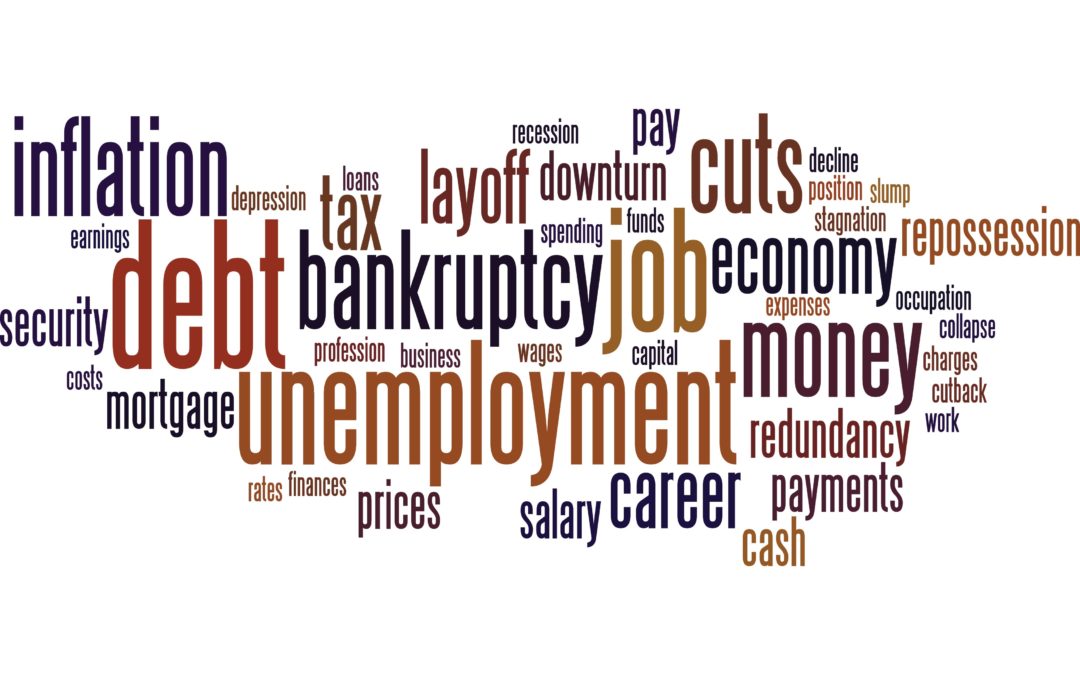We saw a sharp spike in the Canadian unemployment rate in March 2020. Unemployment increased to the highest levels we have seen in years. According to Statistics Canada, we have a 7.8% unemployment in the country and this is forecasted to be higher in the coming months if the lock down following the Corona Virus continues.
To put this in perspective, the last time we saw similar levels of unemployment in Canada was in 2008 following the last financial crash.
If you happen to be one of the millions of people who has lost their jobs due to the pandemic, you can take comfort in the knowledge that you are not alone in this and that there are millions of people in the same boat as you find yourself now.
So here are 10 steps you can take to ensure you survive the tough times ahead.
1. Assess and re-establish your alternative sources of income
If you are fortunate enough to already have one or more alternative sources of income or more, this is the time you want to develop that further and create increased awareness around what you do and the value you are able to create.
There has been an explosion in the number of people partaking in the gig economy in the last few years. This involves connecting with clients and customers usually via an online platform to offer your skills and services on a temporary, flexible or free-lance basis.
Some of the most popular websites include Fiverr, Flexjobs, Upwork and Guru.
2. Apply for Government assistance programs
If you live in Canada, your employer should have been contributing into the employment insurance (EI) scheme. Ask your employer for your record of employment, as you will need this to be able to receive any EI benefits.
This is not the time to let your ego get the best of you so it is best to apply for EI as soon as you lose your job even if you think you will find another job fairly quickly.
EI pays a percentage of your previous income before you lost your job and can be help make your savings go that little bit further. so, ensure you apply as soon as possible.
3. Ensure the compensation received from your employer following your job loss is complete
You would usually be entitled to some form of compensation following a job loss. You will be able to find information on how much your employer owes you in compensation from a combination of documents such as your contract of employment, employee handbook, provincial or federal employment standards, your union’s collective agreement (if applicable). These will typically prescribe the minimum compensation to be paid when an employee is laid off.
The exact amount of money you receive will be based on a number of factors including how long you have worked for your employer, why you lost your job, the terms of your employment contract, your base salary, etc. And the compensation you receive may include a portion for vacation pay, termination pay and/or severance pay.
You may find that you are suddenly in the position to receive a sizeable chunk of change. If this is the case, then you need to create a budget for your pay-off and cut down on your expenses so that the pay-off can sustain you for as long as possible.
4. Revisit your budget and cut expenses
Ok, now that we have gone over possible income sources, the next step is to take a critical look at your expenses and determine what you need and what is a nice to have.
Next, you should aim to cancel whatever subscriptions and services you get out of fairly easily to reduce your monthly outgoings.
You can do this by going over your expenses in your bank account and credit card over the last 6 months. Most banks make it possible for you to download your transactions into a program like Excel for further analysis. Identify what your biggest expenses are and reach out to the various vendors to inform them of your new status.
Following the pandemic outbreak, a number of companies are being very flexible about giving their customers a break. For example, you can contact your vehicle insurance company and let them know you driving will be reduced so you would like to reduce the number of mileages your coverage was based on.
You could also contact your utilities and energy provider to let them know of the changes in your finances. They may be able to defer payment on your account for a few months or let you pay a reduced amount. This is usually conditional on you not being behind on your payments prior.
5. Contact your mortgage provider and request a mortgage holiday or deferral
For a lot of families, their mortgage payment is the largest monthly expense that they have, so it is a good idea to contact your mortgage provider to request a deferral. A number of the banks have made the process very easy to go through with some of them letting you do this completely online with a decision given within three to five days.
6. Keep a long term focus on your investments
If you had built up an emergency fund account, then this is when it would come in handy. It is usually recommended to have enough savings to cover at least 3 – 6 months of your basic living expenses for emergencies such as this.
Liquidating your investments should be your absolute last resort. Particularly if the stock market declines we have seen in the first quarter of 2020 continues. The reality of investing is that you make money when you buy and you lose money when you sell. So to flip this on its head, there will be some opportunity in this down market to pick up quality value companies that would survive the economic down turn. (It is advisable to speak to your investment advisor if you need some help with your investments).
7. Prepare to re-enter the work force
is there a skill that you have been wanting to learn but never seemed to have the time to do so? Well, consider doing so now. There are a lot of free resources available on the internet, on Youtube etc. Alternatively, if you have the resources to invest in yourself, you could also take up some of the paid courses
8. Start applying for a new job
Apply for as many jobs as you can. This can be very tasking and time consuming especially if you have not done this in a while. It takes some practice to get back in the swing of things, especially if you are writing cover letters for each job application.
This may even become very disappointing after a while if you are not hearing back from recruiters and hiring managers but keep at it and it would surely pay off eventually. You need to consider the act of trying to find a new job your “current full-time job” until do fine an employer who is willing to employ you for your skills.
9. Be positive
Maintaining a positive mindset can be difficult when you are trying to find a job, so you may need to actively work at this. There are a few actions that can help with this, such as keeping up your daily routines. Get up about the same time each day, perform your daily grooming activities and resume your job search at about the same time you would normally resume at work.
Lastly, from my personal experiences, I have found that whenever I go over my written positive affirmations in the morning, this gives me a boost and encourages me to keep going.
10.Speak to a credit counsellor if you feel overwhelmed
If you are feeling very overwhelmed following your job loss and you think all the available resources is not going to be enough to keep you afloat, then please contact a credible credit counsellor who would be able to help you restructure your finances.
Let me know in the comment section, if you have any tips of you own that you are following to take you through these difficult times.


